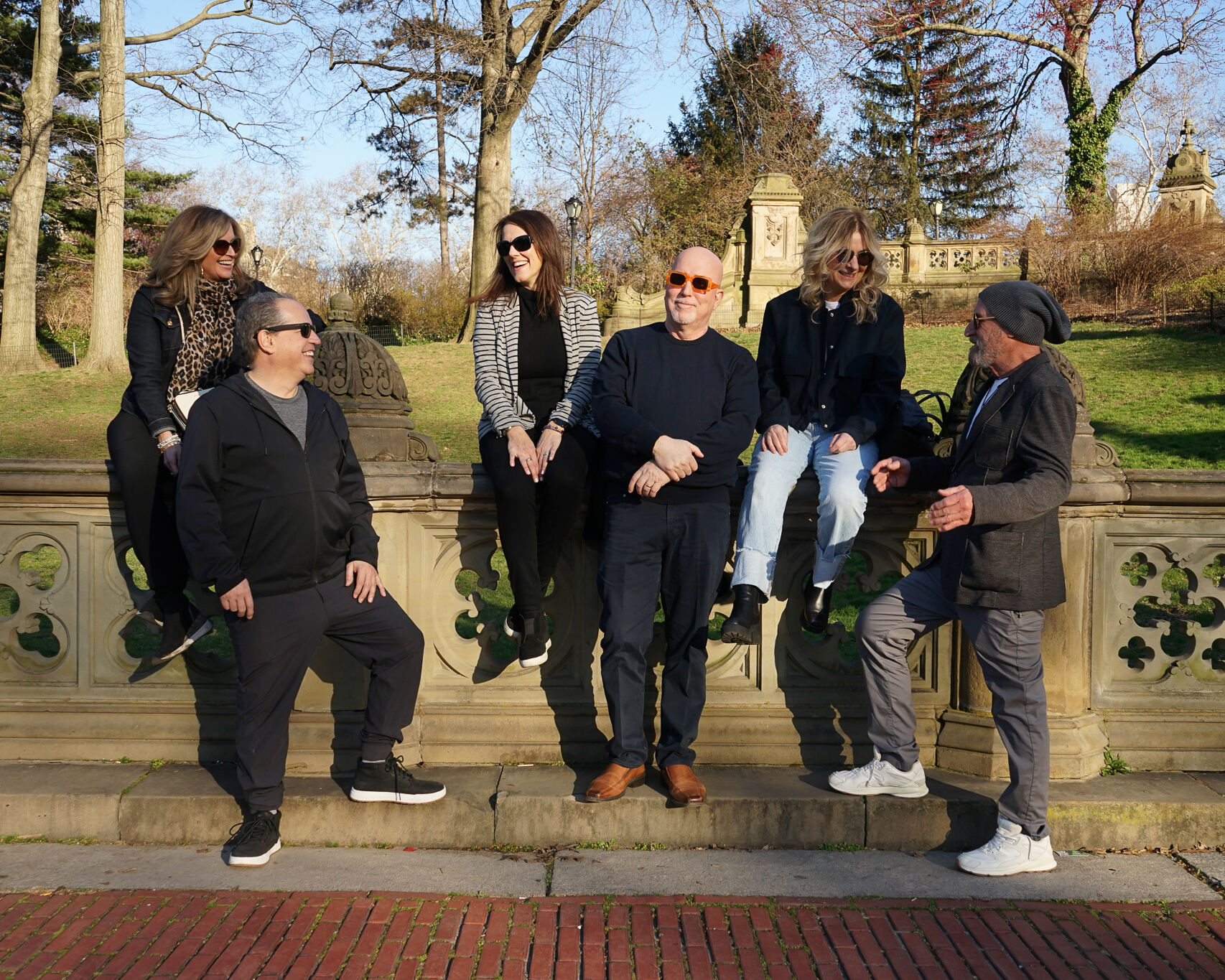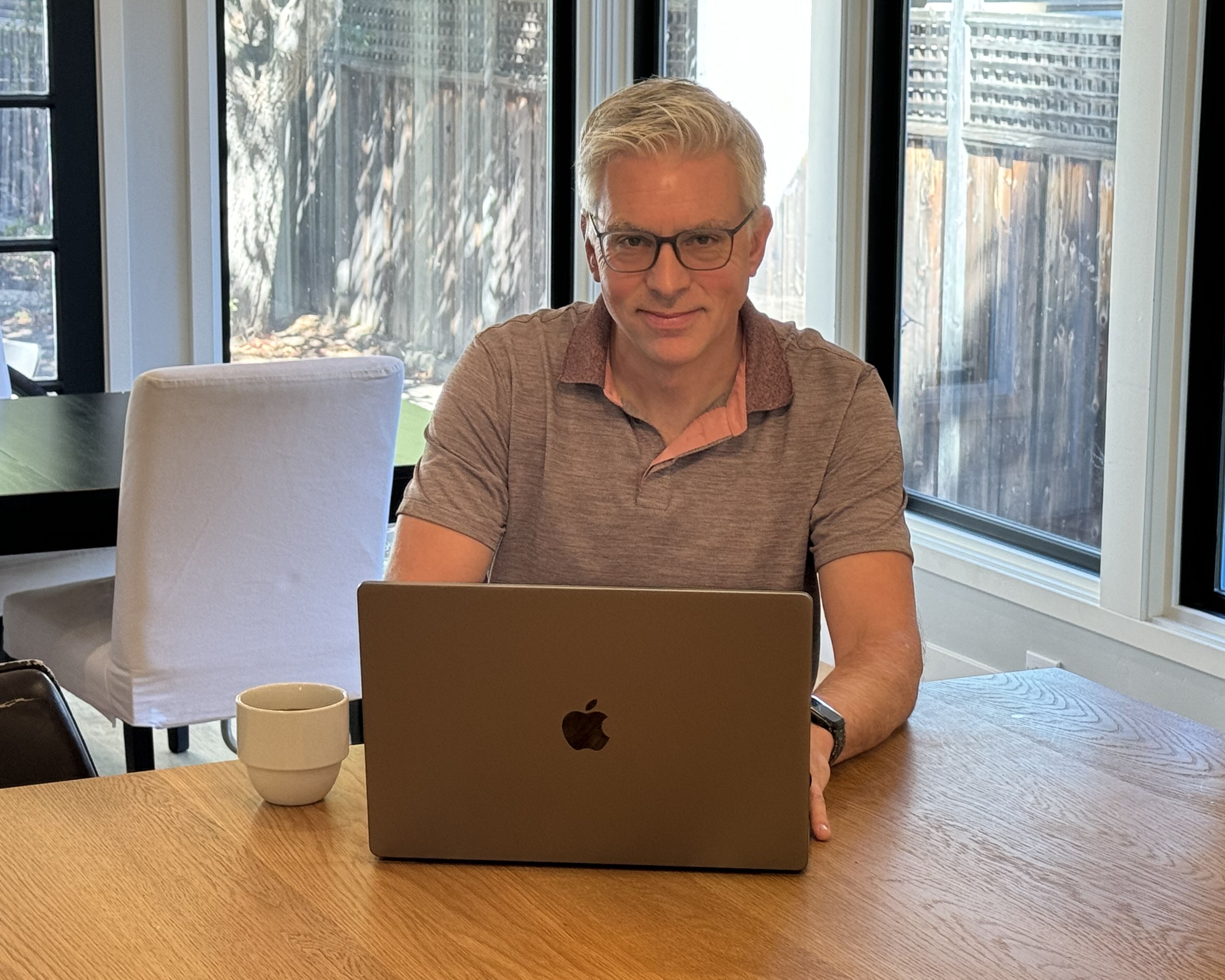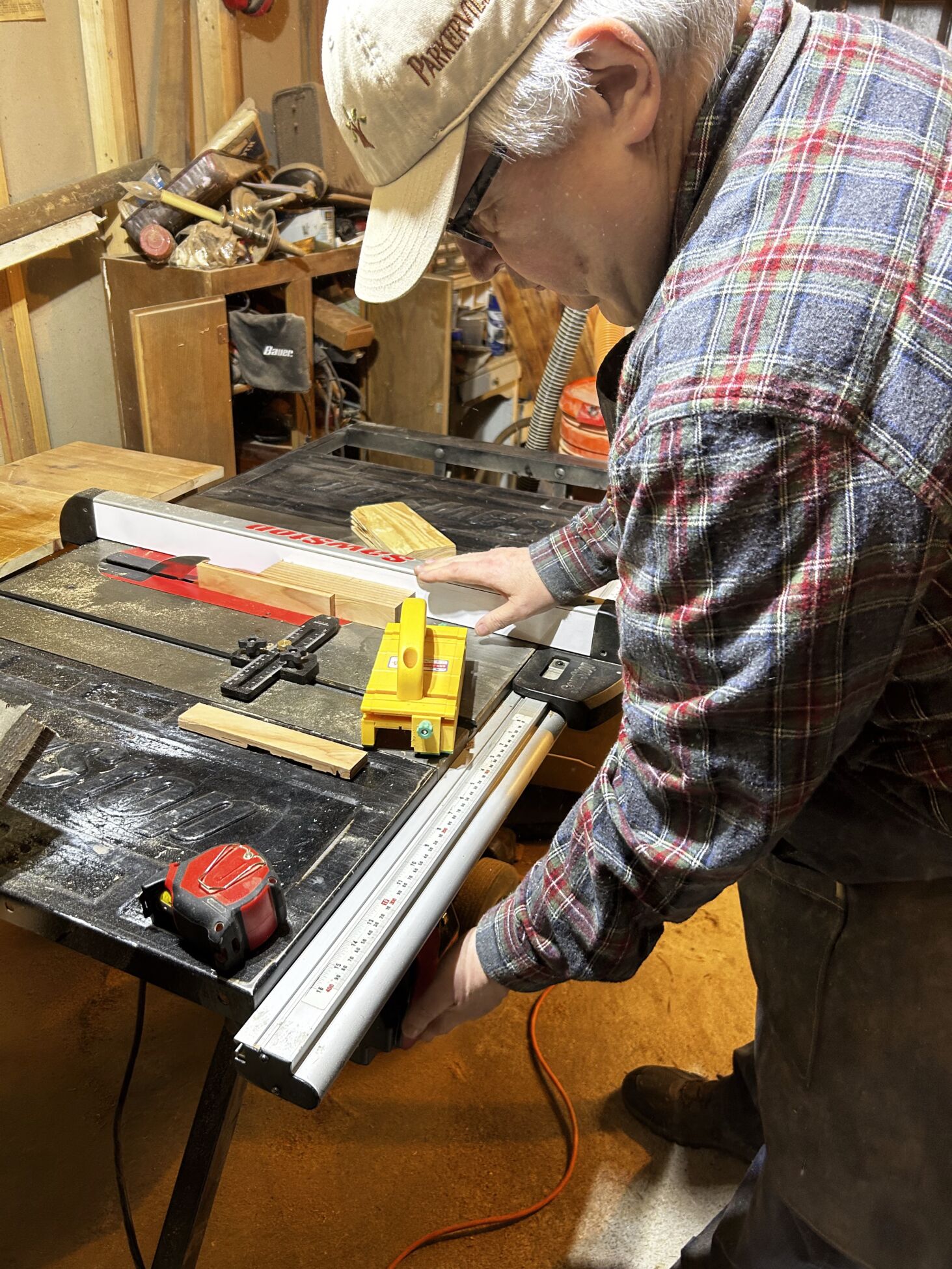
Peter Reville faced a question in his fifties that led him to woodworking as a path to wellbeing and happiness.
The Question That Started It All
Last week I was catching up with a former work colleague. He was talking about how crazy life was with family, trying to get a business of the ground, and just life in general. That’s when the light bulb went off in my head.
“Do you have a hobby? What do you do for fun?,” I asked. Deafening silence on the other end.
It was at that moment that it struck how important my hobby has become to me.
Sawdust & Sanity
You see, for about the past five years, I have been spending my spare time making things from wood. I don’t create anything special, things like cutting boards, boxes, and simple furniture, but the happiness it brings me is remarkable and it has impacted me in so many ways. I give most of my stuff away, but I’m afraid friends and relatives have enough of my works of art. In the early days when the quality of my work wasn’t as good, I used to tell them it was “folk art”.
This is the part of the story where I tell you how taking up woodworking has become a metaphor for my life and my career. Yeah no, not really. Who the hell would want to hear me drone on about that ? Rather, it’s just a story of how I found a new hobby has brought me a little more happiness in my life.
Filling the Empty Nester Void (Without Just Working More)
It wasn’t until I had this conversation last week that I was able to fully understand what having a hobby meant for me.
I was at the time in my life where I had a lot of “free time”, or time that could be more purposefully spent. The kids had gone to college and others were out on their own. In retrospect I needed something to fill the void that had been created by being an empty nester. Work was taking up more time than it needed to, and boredom led to unnecessary job related work on the weekends and evenings. I was becoming very one-dimensional, or stated differently, very f’ing boring. I guess work was fulfilling but I didn’t realize I needed to add something to my game. I need another way to use my brain.
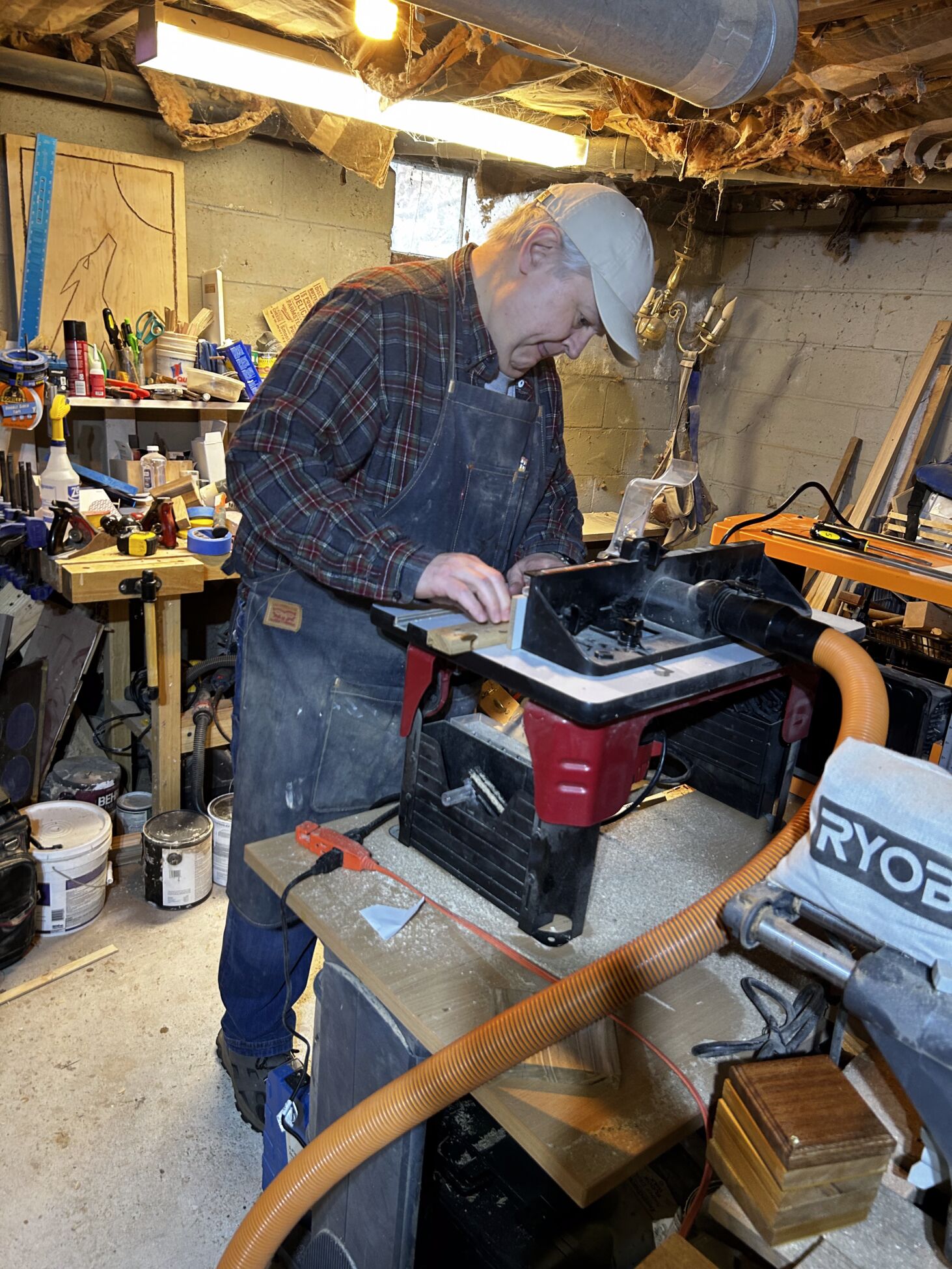
Peter Reville realized he needed to add something to his game—a way to use his brain beyond work and career.
The Sacred Space of Shop Time
Having a distraction from the day-to-day and switching focus has been so fulfilling. When I go into the shop, I am in my inner sanctum. As best as I can, I shut off the “other stuff” and focus on what I need to do to create this nightstand.
- What materials will I use?
- What are the dimensions?
- How will I join the wood together?
- What finish will I use?
- Do I have the right tools? (Honestly, you never have all the tools you want)
- Ugh, the shop’s a mess, should I clean up first?
- Will my wife threaten bodily harm because of the noise and the sawdust that gets everywhere?
Break it down, create the mental check list, start with a piece of lumber, and make it look pretty. When I am in this mode I am not really thinking about the outside world. Gone are the worries about the job (or in my case, finding a job), the current geopolitical situation, the price of eggs, and all the other stuff that clogs our brain. It is all about creating in this mode. How do I take a bunch of wood, glue, and tools to make something somebody wants? That’s the focus when I am on shop time.
The Joy of Making, Giving, and Geeking Out
When I’m done with a project, the joy of completion and a job well done is exhilarating and sometimes hard to come by in the other parts of my life. Better yet, is the feeling you get when you give something you have made to someone, and they truly appreciate it. I always get more enjoyment from giving than receiving.
The ability to be creative and try news things is something that many of us do not have the luxury of in our daily routine. Being able to have an idea and actually create it is so mentally satisfying. Maybe it is small and won’t drive the stock price or get me a promotion, but it is something I built. Further, I know that when I give it away someone will appreciate it – at least that’s what they tell me.
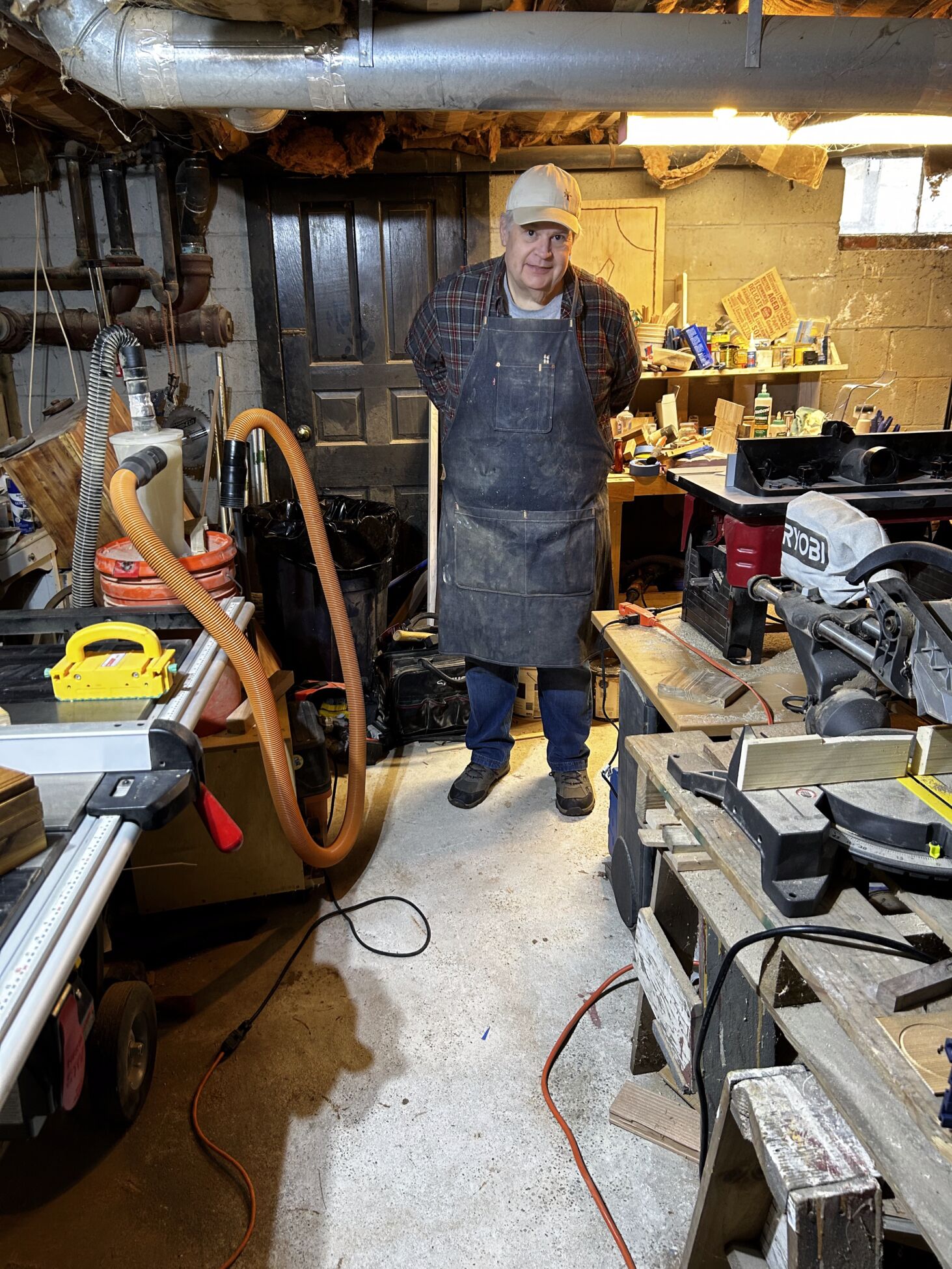
For Peter, the joy of completing something with his own hands is exhilarating—and often missing from other parts of life.
Screw-Ups, Splinters, and Other Life Lessons
Are there times when it’s stressful? Sure. Do I get splinters, cuts, and scrapes? Of course. Is it as frustrating as golf? Alas, yes. Do I try new things and screw it up? You betcha. Would I give it up? Hell no.
My hobby has allowed me to stretch my brain and become creative. Further, I am learning all the time, new techniques, new materials, new build ideas. I have made new friends as I have found other people who like to geek out about this stuff. We share tips, ideas and support.
I won’t share you with all the boring research around the benefits of having hobbies suffice to say that hobbies help with the whole you – mental, physical, cognitive and social. Some say they also have positive impacts on your professional life as you foster your creative side.
What Science Says (But We Already Knew)
A quick search of the Google revealed the benefits of having a hobby include:
- Research has shown that hobbies can reduce stress, improve mood, increase creativity, enhance concentration and focus, bring a sense of accomplishment and improve our “connectiveness” with others.
- Hobbies have also been shown to improve our physical health via lower stress hormone levels and physical activity
- Many hobbies can be social via groups, communities or even sports keeping people connected thus reducing loneliness and isolation.
- A study found a correlation between hobbies and increased job performance, suggesting that all work and not play makes Jack a worse employee.
Your Turn: Find Your Version of Sawdust Therapy
I have found an outlet. For me it’s creating with wood. There is so much out there to explore if wood isn’t your thing – music, cooking, sports, crafts, painting, photography, and the list goes on. I get it life is busy, life is hard, life is complicated. That said, if you can find something else, something completely different in your day that requires some undivided attention, I bet you’ll fill a big hole you didn’t even know was there.
Author’s note: No Artificial Intelligence was harmed to author this article.

Peter Reville’s woodworking hobby became his unexpected path to purpose, peace, and a quieter mind—after 50.
Share this Article!
More Articles

